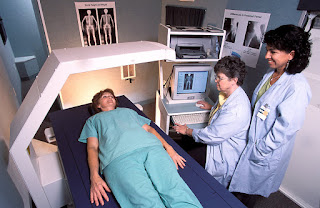Written By: Casey Smith
While emergency doctors treat patients with a wide variety of medical issues, one of the most common causes for a visit to the emergency room is a car accident. Car accidents may result in injuries that range anywhere from mild to severe, but either way, doctors trained through an emergency medicine residency are ready to treat car accident victims.
Car Accident Statistics
- There are an average of 6 million car accidents in the U.S. each year.
- On average, more than 90 people die in car accidents each day in the U.S.
- Approximately 1.3 million deaths worldwide are caused by car accidents each year.
- Roughly 1 out of 7 drivers do not wear a seat belt.
- Roughly 1 out of 3 drivers text while operating a vehicle.
- Traffic accidents are considered to be the 9th leading cause of death worldwide.
Common Causes of Car Accidents
- Distracted driving
- Driving under the influence of drugs or alcohol
- Speeding
- Running red lights or stop signs
- Inexperienced drivers
- Changing lanes carelessly
- Wrong-way driving
- Tired or sleep-deprived drivers
- Tailgating
- Inclement weather
- Animal crossings
Common Car Accident Injuries
There are many different injuries that can occur in the midst of a car accident. Patients who are lucky experience minimal, if any, injury. Others, on the other hand, may experience life-threatening injuries, or even death. Many common injuries due to car accidents include:
- Soft tissue injuries typically affect ligaments, tendons and muscles, which can become stretched during a car accident. This is often referred to as "whiplash."
- Cuts and scrapes are usually the result of being hit by loose, projected objects in the car. They may also occur from hitting or rubbing up against parts of the car itself, such as the airbag or doors.
- Head injuries can range anywhere from minor to severe, but can be very dangerous, depending on the severity. Car accidents can cause muscle strain in the neck or back, or may result in a driver or passenger hitting his or her head against something in the car. When more serious head injury occurs, fluid, tissue and/or the skull may be damaged. Less serious head injury may include general soreness or concussion.
- Chest injuries may be mild, resulting in minor bruises or contusions. However, more serious chest injuries may result in broken ribs or internal damage.
- Arm and leg injuries can occur when a driver or passenger's arms or legs are thrown against or weighted down by parts of the car or other present objects. This can cause minor bruising or scrapes, or even sprained or broken bones.
If you are ever in a car accident in which any signs of injury are present, you will likely take a trip to the emergency room. The doctors waiting to treat you have gained plenty of experience through an EM residency and practice as official doctors. Therefore, you should feel assured that you are under the care of trained and compassionate professionals.



